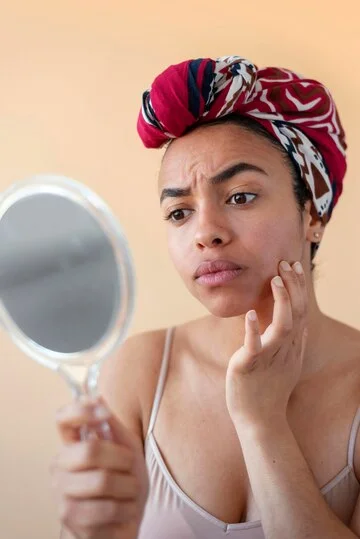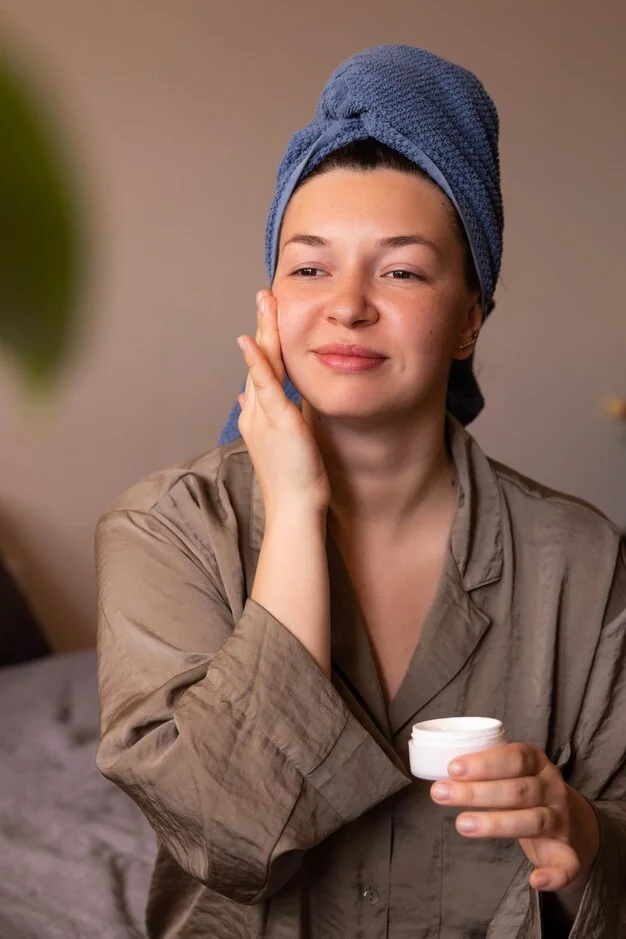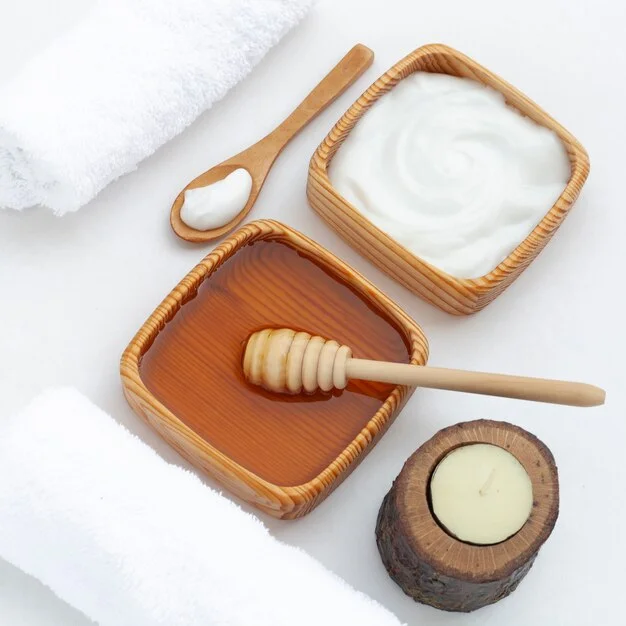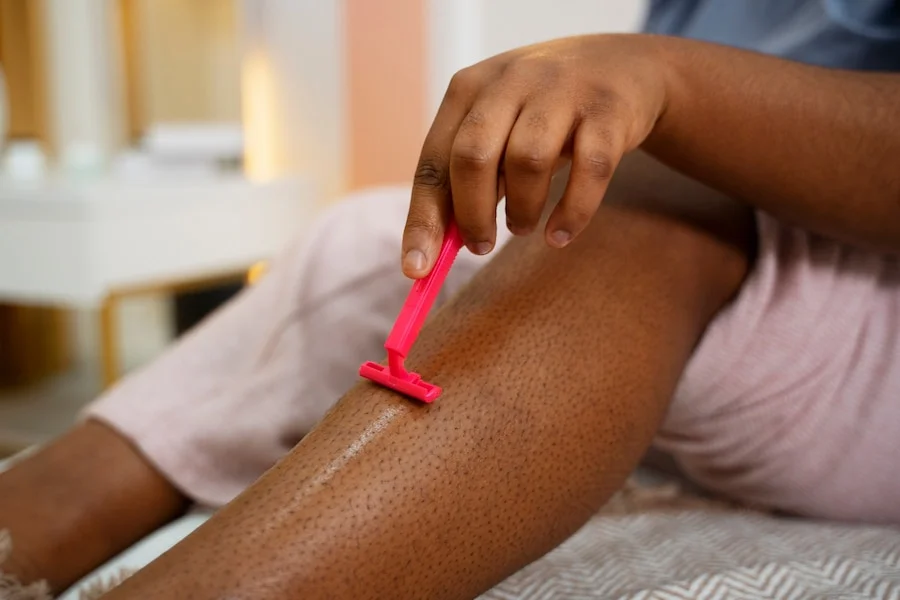In Canada’s winter season, known for its cold and dry weather, it is essential to prioritize keeping your skin hydrated and protected to maintain its health and natural glow.
To ensure that your skin stays refreshed during the winter months, consider the following tips:
- Use a gentle cleanser. Avoid harsh cleansers that can strip your skin of its natural oils.
- Switch to a richer moisturizer. In the summer, you may be able to get away with using a lightweight moisturizer. However, in the winter, you’ll need to switch to a richer moisturizer that can provide your skin with the hydration it needs.
- Add a hydrating toner. A hydrating toner can help to add extra moisture to your skin and prepare it for moisturizer.
- Lock in moisture with an oil. After applying moisturizer, you can seal in the moisture with a facial oil. Facial oils are especially helpful for dry skin, as they can help to keep your skin hydrated and protected.
- Exfoliate regularly. Exfoliating helps to remove dead skin cells from the surface of your skin, which can make your skin look brighter and more radiant. However, be careful not to over-exfoliate, as this can dry out your skin.
Recommended product: Cynosure’s B.E. Beautiful Energy.
(B.E. Beautiful Energy is a line of medical-grade skincare products formulated with a blend of high-performance ingredients to help hydrate, soothe, and protect the skin.)

- Use a humidifier. A humidifier can add moisture to the air in your home, which can help to keep your skin hydrated.
- Continue using sunscreen year-round. Even on cloudy days, the sun’s UV rays can damage your skin. That’s why it’s important to continue using sunscreen year-round, even in the winter.
Now that we’ve covered the basics of winter skincare in Canada, let’s explore some of the specific topics mentioned in the introduction in more detail.
Table of Contents
ToggleWinter Skincare Products
Here are some specific products that you may want to consider for your winter skincare routine:
Cleansers: B.E. Hydrating Cleanser, CeraVe Hydrating Facial Cleanser, La Roche-Posay Toleriane Hydrating Gentle Facial Cleanser, Aveeno Ultra-Calming Foaming Facial Cleanser.
Moisturizers: B.E. Ultra Hydrating Face & Eye Cream, CeraVe Moisturizing Cream, La Roche-Posay Lipikar Balm AP+M, Aveeno Ultra-Calming Daily Moisturizing Lotion.
Toners: Hada Labo Gokujyun Premium Hyaluronic Acid Lotion, Klairs Supple Preparation Unscented Facial Toner, Thayers Witch Hazel Facial Toner Alcohol-Free Rose Petal.
Oils: Rosehip oil, Jojoba oil, Squalane oil.
Exfoliators: Paula’s Choice 2% BHA Liquid Exfoliant, CeraVe SA Smoothing Cleanser, The Ordinary Glycolic Acid 7% Toning Solution.
Humidifiers: Honeywell HUL535W Germ-Free Cool Mist Humidifier, Crane EE-5003 Personal Mini Humidifier, Levoit LV600HH Ultrasonic Cool Mist Humidifier.
Sunscreens: EltaMD UV Clear Broad-Spectrum SPF 46, La Roche-Posay Anthelios Clear Skin Dry Touch Sunscreen SPF 60, CeraVe Hydrating Mineral Sunscreen Broad-Spectrum SPF 50.
Related: Canadian Dermatology Association (CDA) Expert Advisory Board recognized skincare products
The Science Of Winter Skincare
When the temperature and humidity drop, the skin can become dry, flaky, and irritated because the cold air strips away the skin’s natural oils which are essential for keeping it hydrated and protected.

Moreover, the lack of humidity in the air can lead to skin dehydration, making your skin look dull and lackluster.
To protect your skin during the winter months, it is essential to follow a skincare routine that focuses on hydration and protection.
This includes using a gentle cleanser, a moisturizer that nourishes the skin, and applying sunscreen daily.
Furthermore, adding a humidifier to your living space can help restore moisture levels in the air.
Winter Skincare For Different Skin types
Winter skin care needs vary depending on the skin type. For instance, individuals with dry skin may require a more substantial moisturizer compared to those with oily skin.
On the other hand, people with sensitive skin should steer clear of certain ingredients that may cause skin irritation.
To cater to these diverse skin care needs, here are some winter skin care tips tailored to specific skin types.
Dry skin: Use a rich, creamy moisturizer and avoid hot showers. You may also want to use a humidifier to add moisture to the air in your home.
Oily skin: Use a lightweight, oil-free moisturizer. You may also want to avoid exfoliating too often, as this can strip your skin of its natural oils and make it produce more oil.

Acne-prone skin: Use a gentle cleanser and a non-comedogenic moisturizer. You may also want to use a topical treatment for acne, such as benzoyl peroxide or salicylic acid.
Sensitive skin: Use a fragrance-free, hypoallergenic moisturizer. You may also want to avoid using harsh chemicals on your skin.
Winter Skincare For Different Age Groups
Winter skincare challenges vary across different age groups. For instance, younger individuals may experience acne breakouts, whereas older individuals may encounter dry skin and wrinkles.
To address these concerns, here are some age-specific winter skin care tips:
Adults (ages 18-64): Use a moisturizer that is appropriate for your skin type. You may also want to consider using sunscreen with an SPF of 30 or higher every day, even on cloudy days.
Mature adults (ages 65 and up): Use a rich, creamy moisturizer. You may also want to consider using a serum with hyaluronic acid or niacinamide to help boost hydration and protect your skin from the elements.
Winter Skincare Makeup Tips
If you wear makeup, it is important to choose products that are non-comedogenic and fragrance-free.
You should also avoid using too much makeup, as this can clog your pores and lead to breakouts.

Here are some additional winter skincare makeup tips:
- Start with a clean, moisturized face.
- Use a lightweight foundation or concealer.
- Set your makeup with a loose powder.
- Apply a blush to add a pop of color to your cheeks.
- Finish with a hydrating lip balm.
Winter Skincare For The Whole Body
During the winter season, it’s important to give equal attention to your hands, feet, and lips, in addition to your face.
These areas are particularly susceptible to dryness and cracking.
To ensure complete winter skin care, follow these tips for your entire body:
- Wear gloves and socks when you are outdoors.
- Apply a moisturizer to your hands, feet, and lips several times a day.
- Use a humidifier to add moisture to the air in your home.
- Avoid taking hot showers and baths.
DIY Winter Skincare Recipes
There are a number of DIY winter skin care recipes that you can try at home.
These recipes are often less expensive and more natural than commercial products.
Here is a simple recipe for a DIY winter skin care mask:
- Mix 1 tablespoon of raw honey with 1 tablespoon of plain yogurt.
- Apply the mask to your face and leave it on for 15-20 minutes.
- Rinse the mask off with warm water and pat your face dry.

*Raw honey: Raw honey is unfiltered and unheated, which means that it retains all of its natural nutrients and enzymes. It is also naturally antibacterial and antifungal, making it a good choice for people with acne-prone skin.
*Plain yogurt: Plain yogurt is a good source of lactic acid, which is a natural exfoliant. It also contains probiotics, which can help to balance the skin’s microbiome.
Winter Skincare Myths and Misconceptions
There are a number of myths and misconceptions about winter skin care. Here are a few of the most common:
Myth: “You don’t need to wear sunscreen in the winter”.
Fact: The sun’s UV rays can damage your skin year-round, even on cloudy days. It is important to wear sunscreen with an SPF of 30 or higher every day, even in the winter.
Myth: “Hot showers are good for your skin”.
Fact: Hot showers can strip your skin of its natural oils, leading to dryness and irritation. It is best to take lukewarm showers or baths in the winter.
Myth: “You don’t need to exfoliate in the winter”.
Fact: Exfoliating can help to remove dead skin cells from the surface of your skin, which can make your skin look brighter and more radiant. However, it is important to exfoliate gently and avoid over-exfoliating, as this can dry out your skin.
Myth: “You can use any moisturizer in the winter”.
Fact: It is important to choose a moisturizer that is appropriate for your skin type and the climate. In the winter, you may need to switch to a richer, more hydrating moisturizer.
Conclusion
Winter skin care is important for keeping your skin healthy and hydrated during the cold, dry winter months.
By following the tips above, you can create a winter skincare routine that is right for you.

Dr. Lian Peter, MD, MPH, CCFP, is a Family physician with a passion for aesthetics. In her aesthetic clinic, she provides a wide range of minimally invasive and non-invasive procedures, constantly honing her skills to deliver exceptional care and help patients attain their desired appearance.





